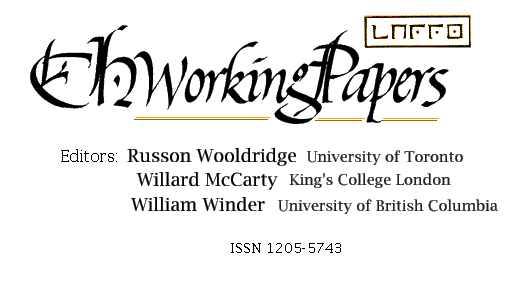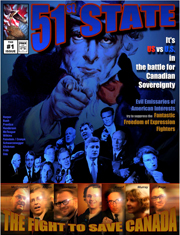 Digitize This Book! by Gary Hall is an interesting book at the intersection of cultural studies and humanities computing. The book seems to be addressed mostly to the cultural studies crowd arguing that “do cultural studies writers, thinkers, and practitioners not also need to experiment with ways of being ‘militant’ in a positive, innovative, creative, and constructive fashion in their own situations, institutions, and places of work?” (p. 206) The book is a sustained defense of the Cultural Studies e-Archive (CSeARCH) and other computing projects that Hall has initiated. He is trying to make space in cultural studies for projects we would recognize as humanities computing projects. To do this he argues against “transcendental politics” which assume a commitment to a particular political analysis in order to open room for actions, like starting an open archive, that cannot be demonstrated a-priori to be in support of capitalism or not. He ends the book with,
Digitize This Book! by Gary Hall is an interesting book at the intersection of cultural studies and humanities computing. The book seems to be addressed mostly to the cultural studies crowd arguing that “do cultural studies writers, thinkers, and practitioners not also need to experiment with ways of being ‘militant’ in a positive, innovative, creative, and constructive fashion in their own situations, institutions, and places of work?” (p. 206) The book is a sustained defense of the Cultural Studies e-Archive (CSeARCH) and other computing projects that Hall has initiated. He is trying to make space in cultural studies for projects we would recognize as humanities computing projects. To do this he argues against “transcendental politics” which assume a commitment to a particular political analysis in order to open room for actions, like starting an open archive, that cannot be demonstrated a-priori to be in support of capitalism or not. He ends the book with,
A fixed, pure and incorruptible institution could only be a violent, transcendental, totalizing, and totalitarian fantasy. One could even argue, after Derrida, that it is precisely the structurally open and undecidable nature of the situation – the fact that an institution or archive can be used to facilitate the forces of capitalism and globalization – that gives it ethical and political force. (p. 214)
Now I tend to shudder when I read phrases like “the forces of capitalism”, partly because I don’t understand the tradition of thought that takes such things as givens, but I don’t, as many colleagues do, believe we should therefore shun cultural studies or other forms of post-modern thought. Hall is interested in something important and that is the ethics and politics of digital work. To avoid discussing the ethics and politics of what we do in the university or as developers of digital works is to ascribe to a naive and unexamined ethic. Many avoid politics because the discourse has been politicized by second rate cultural studies folk who think shaming others for not being militant is a form of engagement. Hall is trying to open room for a form of politics beyond politics (or hyperpolitics) where we can act without knowing for sure what the consequences of our actions will be. That is the heart of ethics for me, acting (or not, which in turn is a form of acting) in the face of insufficient knowledge or ability. We always do things without being sure, ethics is knowing that and trying to deal thoughtfully with the ignorance.
Part of what I am saying here, then, is that certain forms, practices, and performances of new media – including many of those associated with open-access publishing and archiving – make us aware that we can no longer assume that we unproblematically know what the “political” is, or what sorts of interventions count as political. (p. 196)
Hall in his actions (like CSeARCH and the Open Humanities Press) and in his writing is trying to reach out to those in open access circles and in computing circles. We who are too buried in the techne should reach back.
You can find earlier versions of sections on CSeARCH like The Cultural Studies E-Archive Project (Original Pirate Copy), but, ironically, I can’t, find a copy of Digitize This Book!. No one has bothered to digitize it, no doubt due to the copyright notice as the beginning (p. iv) that states,
All rights reserved. No part of this publication may be reproduced, stored in a retrieval system, or transmitted, in any form or by any means, electronic, mechanical, photocopying, recording, or otherwise, without the prior written permission of the publisher. (p. iv)
Is there a contradiction between the injunction of the title (“Digitize This Book!”) and the copyright notice? What is the status of a title when it comes to rights? Should I digitize the book?
To be fair to Hall, the chapters of his previous book, Culture In Bits are available on CSeARCH and I assume he will make Digitize This Book! also available after a suitable interval. Perhaps someone knows him and can update me or point me to a digitized version already open.
Note: since writing this someone passed on a note to Gary Hall who kindly pointed me to online copies of other chapters. See my more recent blog entry with the links.
Hall makes an interesting move at the beginning of the book to position open access as a middle way for the university between the commercialization of the university and the (impossible elitist) return to whatever it is we think we were doing in the humanities in the good old days. I find it interesting that Hall believes “cultural studies has for some time now arguably been the means by which the university thinks about itself …” (p. 13). I’ve seen no evidence of this – cultural studies to me seems to want to position itself as outside the university critiquing it in the Socratic gadfly tradition rather than taking a role acknowledged by the university. It would probably come as a surprise to most university administrators that cultural studies is doing this for them and somehow represents the university’s institutionalized reflection. And therein lies the promise of Hall’s book – that there is type of creative activity we can all engage in, through which we can imagine the university by modeling it. We don’t need approval to set up open works. We can use the technology to become a way for the university to think about itself.

 Today, October 14th, 2008, is
Today, October 14th, 2008, is 

 Once I notice one comic being used to introduce computing issues I’m told of another. Google commissioned the Chrome comic, Gordon Duncan of
Once I notice one comic being used to introduce computing issues I’m told of another. Google commissioned the Chrome comic, Gordon Duncan of